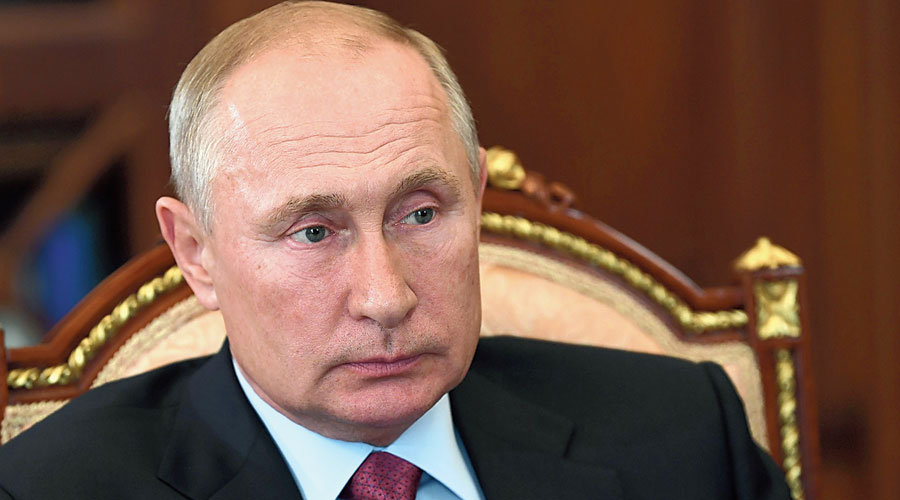Britain has seized the world’s attention by accusing President Vladimir V. Putin of plotting to install a pro-Russian leader in Ukraine, a dramatic late-night announcement on Saturday that instantly thrust it on to the front lines of the most dangerous security crisis in Europe in decades.
Britain added that Russian intelligence officers had been in contact with a number of former Ukrainian politicians as part of plans for an invasion.
The highly unusual British public statement comes at a time of high tensions between Russia and the West over Russia’s massing of troops near its border with Ukraine. Moscow has insisted it has no plans to invade.
Russia will face severe economic sanctions if it installs a puppet regime in Ukraine, a senior UK minister said on Sunday. “There’ll be very serious consequences if Russia takes this move to try and invade but also install a puppet regime,” British deputy Prime Minister Dominic Raab told Sky News on Sunday.
The Russian foreign ministry dismissed the comments as “disinformation”, accusing Britain and Nato of “escalating tensions” over Ukraine.
Mykhailo Podolyak, a Ukrainian adviser to the presidential office, said the allegations should be taken seriously.
British officials say its release of sensitive intelligence was calculated to foil a potential plot and to send a message to Putin. They cast it as part of a concerted strategy to be a muscular player in Europe’s showdown with Russia — a role it has played since Winston Churchill warned of an “Iron Curtain” after World War II.
Yet, Britain’s moves also bear the imprint of a country eager to set itself apart, two years after it left the European Union.
“The UK is differentiating itself from Germany and France, and to some extent, even the US,” said Malcolm Chalmers, the deputy director general of the Royal United Services Institute, a think tank in London. “That comes out of Brexit, and the sense that we have to define ourselves as an independent middle power.”
The theatrical timing and cloak-and-dagger nature of the intelligence disclosure, which came in the midst of a roiling political scandal at home, raised a more cynical question: whether some in the British government were simply eager to deflect attention from the problems that threaten to topple Prime Minister Boris Johnson.
Either way, Britain is moving on multiple fronts. It is preparing legislation that would enable it to impose sanctions if Putin carries out an invasion. It dispatched senior ministers to other Nato countries menaced by Russia. And it has begun engaging directly with Moscow, with reports that its foreign and defence secretaries plan to meet their Russian counterparts in the coming weeks.
The UK foreign ministry said it had information the Russian government was considering former Ukrainian lawmaker Yevhen Murayev as a potential candidate to head a pro-Russian leadership.
Murayev 45, is a pro-Russian politician who opposes Ukraine’s integration with the West. According to a poll by the Razumkov’s Centre think tank conducted in December 2021, he was ranked seventh among candidates for the 2024 presidential election with 6.3 per cent support.
Murayev poured cold water on Britain’s claims that Russia wants to install him as Ukraine’s leader, in comments to Britain’s Observer newspaper.
In a Facebook post later on Sunday, he called for an end to dividing Ukraine into pro-western and pro-Russian politicians.
“Ukraine needs new politicians whose policy will be based solely on the principles of the national interests of Ukraine and the Ukrainian people, he said.”
The British foreign ministry declined to provide evidence to back its accusations. A ministry source said it was not usual practice to share intelligence matters, and the details had only been declassified after careful consideration to deter Russian aggression.
Ukrainian adviser Podolyak acknowledged there was doubt among Ukrainians on whether Murayev was “too ridiculous a figure” to be the Kremlin’s pick to lead Ukraine. But he added that Russia had propped up previously minor figures in leadership positions in annexed Crimea and separatist-held Donbass. Therefore, “one should take this information as seriously as possible”, he said.
(With inputs from Reuters)










